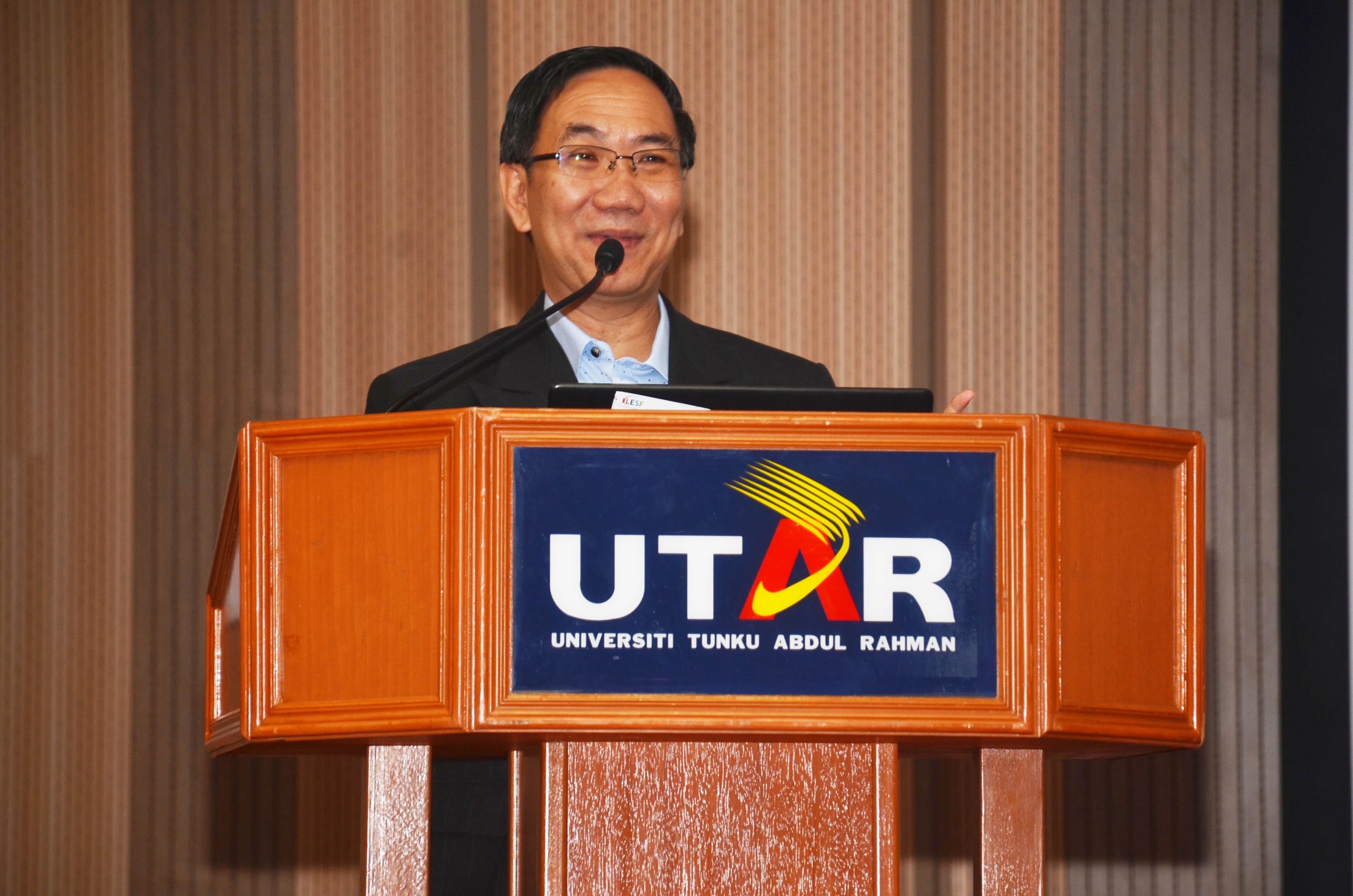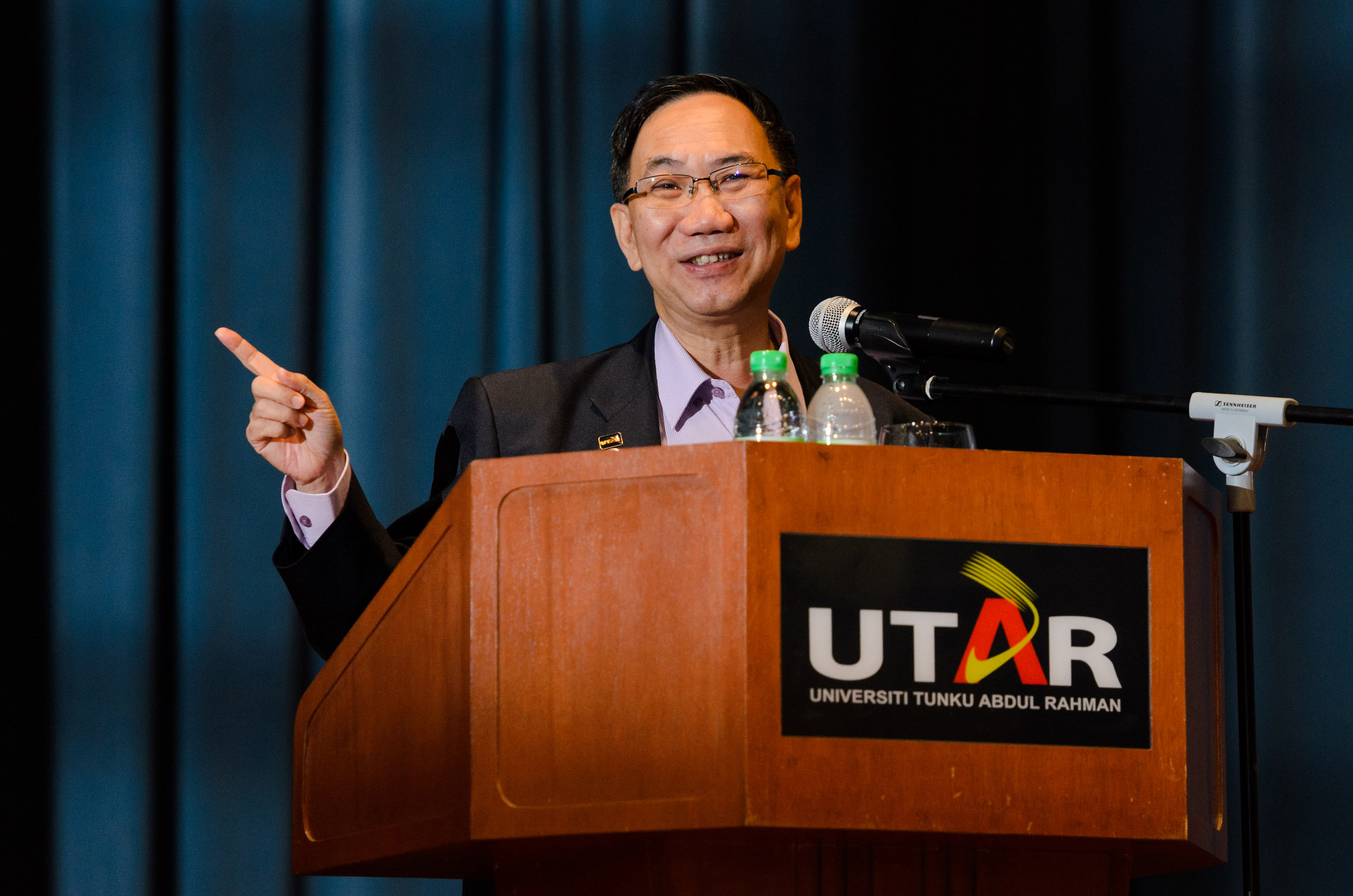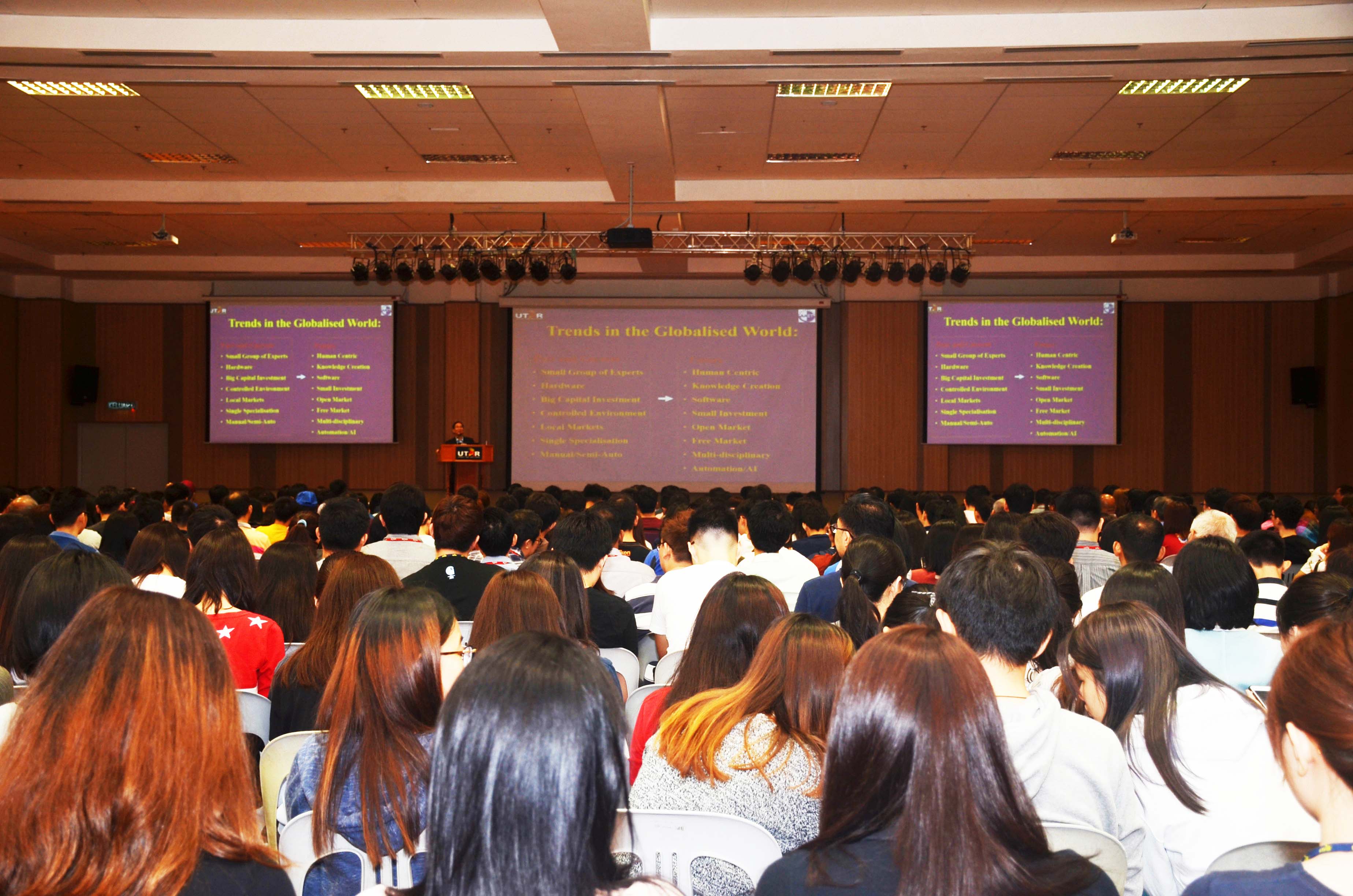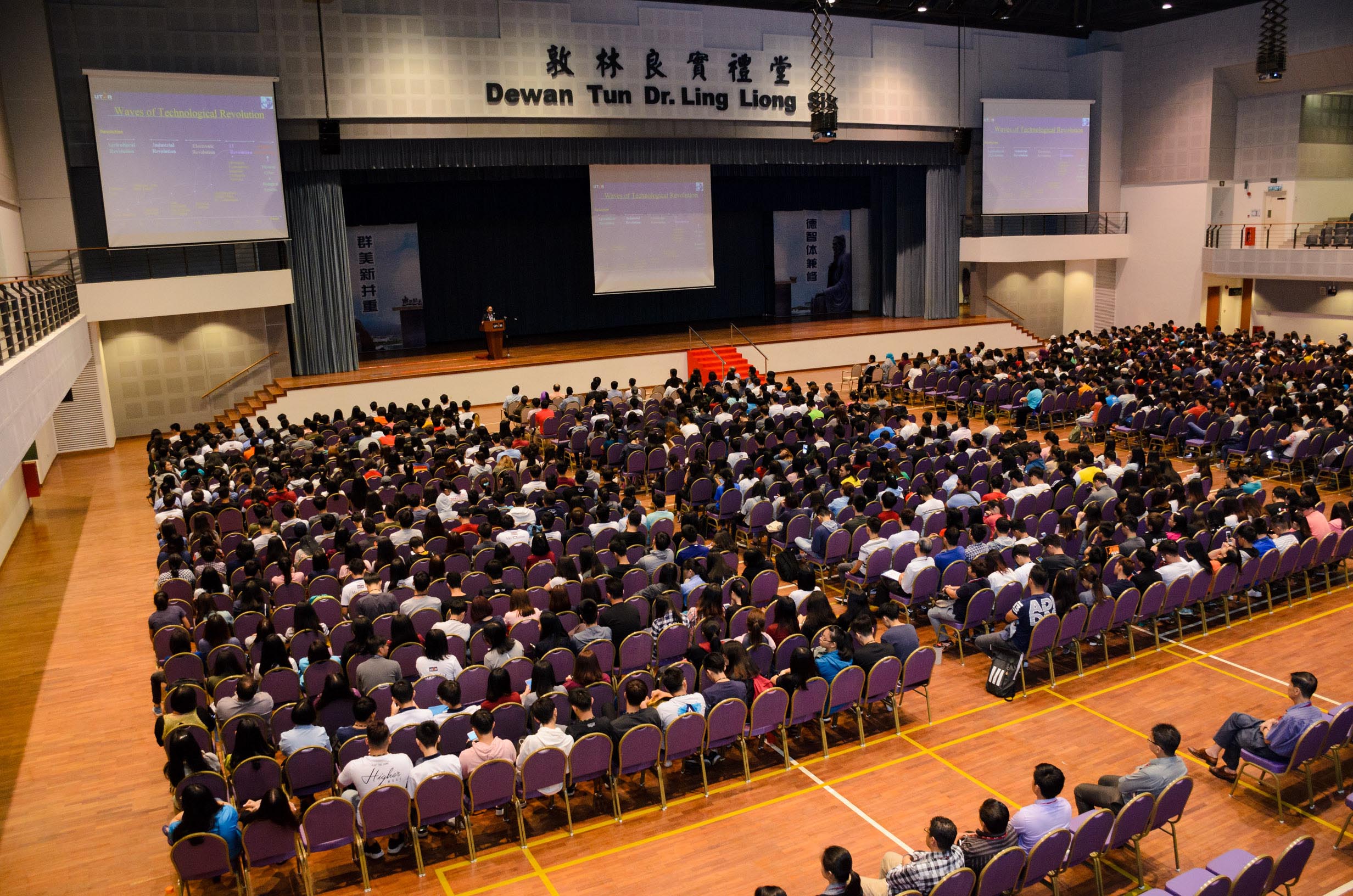

Prof Chuah highlighting the opportunities and challenges in 4IR at the Sungai Long Campus
Ir Prof Academician Dato’ Dr Chuah Hean Teik, the President of UTAR, spoke on the Fourth Industrial Revolution (4IR) at the Sungai Long Campus on 7 March 2018, and again at the Kampar Campus on 21 March 2018.
The talk aimed to create awareness among students on the latest trends of 4IR and focused on the challenges faced by the future graduates in 4IR. In an overview, Prof Chuah elucidated to participants on the waves of Technological Revolution, trends and challenges ahead, the 4IR, skills required for future graduates, as well as the ways to working with industry and professional bodies.
According to the President, technological revolution involves agricultural revolution, industrial revolution, electronic revolution, IT revolution and digital revolution. He said, “The 4IR builds on the Digital Revolution, representing new ways in which technology becomes embedded within societies and the human body. The emerging technology breakthroughs have changed how the future works in the fields of robotics, artificial intelligence, biotechnology, 3D printing and autonomous vehicles.”
Prof Chuah added that the world has become more human-centric. He said, “Developments involving knowledge creation, multidisciplinary approach, small investment, open market, free market, automation and software are some of the latest trends in the globalised world. The global trend is also moving forward in a more convergent and personalised fashion with higher expectations and greater emphases on cost-effectiveness and technological breakthrough. As a result, global advancement and the rise in world population would lead to a higher level of urbanisation.”
He explained, “New things are coming at a much faster pace. It is necessary to keep ourselves abreast of the changes in all fields and aspects including our lifestyles, education and the way we think. These changes would bring about opportunities for growth and developments. The arrival of 4IR would raise the global income and improve the quality of life, while technological innovations would generate higher efficiency and productivity.”
“Nevertheless, we should also foresee the challenges in multiple aspects. The turbulence as a result of the Industrial Revolution would yield greater inequalities and social tensions. The challenges would also cut across many aspects, from the workforce to our daily lives such as water, food, energy, climate change, healthcare, security and job market,” Prof Chuah added.
He further said, “According to the World Economic Forum’s report on “The Future of Jobs” in 2016, transformations in the labour market will create two million new jobs and 65% of children entering primary school today will work in completely new jobs that do not exist now. On the other hand, there will be a loss of seven million jobs in the traditional industrial and service sectors.”
At the talk, Prof Chuah reviewed some of the initiatives and strategies taken by various countries to overcome the challenges in 4IR. For Malaysia, he said, “The Emerging Science, Engineering and Technology (ESET) studied how emerging science, engineering and technology will shape Malaysia by the year 2050. ESET reported that Malaysia’s development of emerging technologies in five main technology areas included Biotechnology, Digital Technology, Green Technology, Nanotechnology and Neurotechnology.”
“There are a few jobs that every company will be hiring by 2020. Among them are data analysts, architects, engineers, organisational development specialists, product designers, and regulatory and government relations experts,” said Prof Chuah. He also mentioned some professions of the future, such as bio-systems engineer, performance technologist, cyber-librarian, tissue engineer, data miner, information architect and knowledge engineer. Besides, he suggested some skills required in 2020 included complex problem solving, creativity, people management, emotional intelligence, negotiation, decision making and cognitive flexibility.
The talks at both campuses were hosted by the Department of Student Affairs and saw the attendance of a total of more than 1900 staff and students.

Prof Chuah listing the future professions of 4IR at the Kampar Campus

Staff and students at the Sungai Long Campus

Staff and students at the Kampar Campus
© 2019 UNIVERSITI TUNKU ABDUL RAHMAN DU012(A).
Wholly owned by UTAR Education Foundation Co. No. 578227-M LEGAL STATEMENT TERM OF USAGE PRIVACY NOTICE